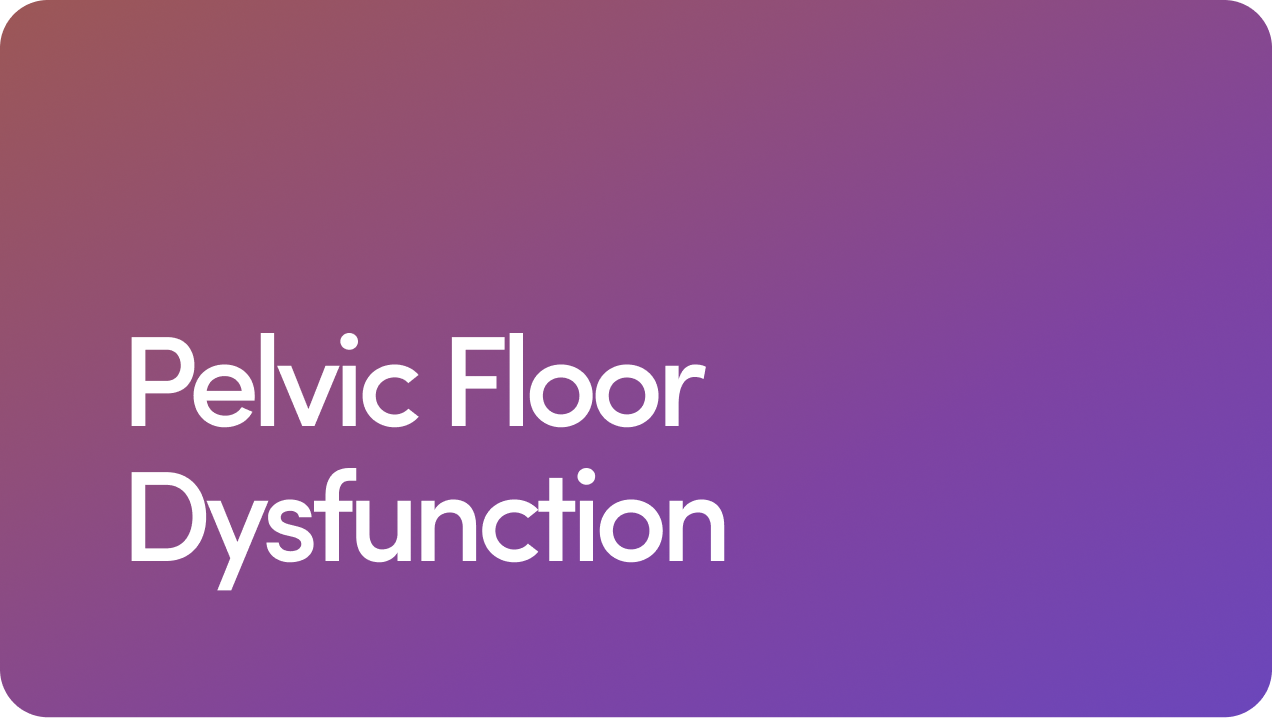Content
Your sex life, your way
Running and Sex: Does Running Increase Sex Drive?

Running isn’t just a great way to stay in shape. It’s also an effective mood booster — and it might even benefit your sex life. Why do running and sex go so well together?
Regular running sessions can enhance your heart health and prevent heart disease, which is closely tied to sexual function and a reduced risk of erectile dysfunction (ED).
But it’s crucial to keep training balanced. Overdoing it can lead to overtraining, which can cause fatigue, irritability, and low libido.
Below, we dig deeper into the connection between running and sex. And if you’re not into running, we also cover some alternative exercises to help improve your sexual health.
Content
The Benefits of Running for Sex
First, a little disclaimer: A lot of the research on running and sex is survey-based. In other words, researchers often have to rely on the participant responses — which may be biased — to draw conclusions.
Anecdotally, many recreational runners report that running improves their libido, sexual performance, and orgasms. But it’s hard to pinpoint whether this is the result of running or something else.
Let’s explore how athletic performance and sexual performance might be interconnected:
1. Running May Help Reduce the Risk of Erectile Dysfunction and Other Sexual Dysfunctions
Does running help ED? Possibly.
There are many causes of erectile dysfunction, including psychological and physical health issues.
Physical causes and risk factors for ED include:
Poor cardiovascular health
Prostate problems
Overweight or obesity
Diabetes
High blood pressure
High cholesterol levels
Sleep disorders
Smoking
Not getting enough physical activity
Running can help reduce and manage some of these risk factors.
A 2023 study points out that running can help with premature ejaculation.
Aerobic exercise like swimming, cycling, and running can improve cardiovascular health and decrease blood pressure.
Another 2023 review found that regular aerobic exercise can help with erectile function.
That’s in part because running can increase blood flow throughout the body, which is necessary for healthy erections.
2. Running Can Boost Stamina
Running can improve both your stamina and your endurance — skills that can come in handy in the bedroom.
Stamina is the ability to keep going at or near maximum capacity, while endurance is the body's ability to maintain physical activity for a long period.
Long, intense sex sessions demand both.
Regular running enhances cardiovascular endurance, helping your heart and lungs supply your body with oxygen over time.
3. Running May Improve Mental Health
Let’s face it: it can be hard to get in the mood when you feel down about yourself.
Psychological factors like depression, low self-esteem, and performance anxiety can contribute to low libido and ED.
This sexual dysfunction, in turn, can worsen your mental health and impact your self-esteem, creating a vicious cycle.
While exercise isn’t a substitute for therapy or medication, it can be an important part of a self-care routine.
Research shows that activities like running can improve overall mental health. In the short term, endorphins give you a “runner’s high,” lifting your mood.
Does Running Increase Sex Drive?
Does running increase libido? It’s a bit complicated.
Many runners say that they feel more “in the mood” after regular exercise, but the direct link is still up for debate. What’s clear is that running can improve your mental health, which might also increase your libido.
But, as much as running can be great for your overall health, you should avoid overdoing it. Prolonged, high-intensity exercise can actually be bad news for your sexual health.
A study from 2022 found that men training for marathons had lower libidos than those doing general endurance training. Why? The researchers speculate that fatigue, energy depletion, and hormonal changes had something to do with it.
Additionally, a mini-review published in 2023 found that intense endurance training might lower testosterone and sexual desire, likely due to low energy availability.
Athletes that engage in intensive, prolonged exercise are at risk of Relative Energy Deficiency in Sport (RED-S), a condition where your body doesn’t have enough energy to keep up with demands. RED-S can negatively impact your body — and your sex drive.
The fix? Balance your running with proper recovery. Rest, hydrate, and eat well. Not sure if you’re on the right track? Seek advice from a trainer, physiotherapist, or dietician.
And if you’re experiencing erectile dysfunction, consider consulting a healthcare professional to rule out an underlying medical condition and discuss your treatment options.
Not much of a runner? That’s okay. Other workouts can also benefit your sexual health.
Other Cardio (Aerobic) Exercises
Aerobic exercise (AKA cardio) gets your heart rate up, making your heart stronger over time.
The U.S. Department of Health and Human Services recommend getting at least 150 minutes of moderate-intensity aerobic exercise or 75 minutes of vigorous aerobic exercise — or a combination of both — per week.
Running is an example of vigorous aerobic exercise. But if running isn’t your thing, you have other options.
Moderate-intensity aerobic exercise can include:
Brisk walking
Slow hiking
Dancing
Gardening
A few vigorous-intensity options include:
Hiking uphill
Swimming laps
Jumping rope
Cycling
If 150 minutes sounds too intense for you, that’s ok! Start where you are. The American Heart Association recommends starting with a small amount of exercise and increasing intensity and frequency over time. A slow and steady approach also helps you avoid injury.
Pelvic Floor Exercises
Exercises that strengthen your pelvic floor muscles can help with ED. The pelvic floor muscles help maintain blood flow to the penis. They do this by putting pressure on the penile veins, which prevents blood from leaving the area, supporting healthy erections.
Kegel exercises can help strengthen your pelvic floor muscles.
Want to learn more? We have a helpful guide that covers pelvic floor exercises for men.
Many avid runners claim that running improves their sexual performance. And they might be onto something: Evidence suggests running might boost your sexual health in a number of ways.
Here’s what to keep in mind:
Cardio may help control erectile dysfunction risk factors. Running and other aerobic exercise can help you improve your heart health. A healthy cardiovascular system is crucial for healthy erections.
Running can help improve your mental health. Mental wellness plays a major role in the bedroom. And research suggests a link between exercise and better mental health.
Running too much can be harmful. Can running and erectile dysfunction go hand in hand? Research shows that overtraining (exercising excessively) can actually lower your libido. Moderation is key!
Healthy exercise habits are great. But sometimes, you still might need a little extra help.
The good news? You have plenty of science-backed options to address sexual dysfunction. Erectile dysfunction medications like sildenafil and tadalafil can make it easier for you to get and maintain an erection.
Looking for more sexual health guidance? Make an appointment today to speak with a licensed healthcare professional. They can help you figure out next steps.
13 Sources
- American Heart Association recommendations for physical activity in adults and kids. (2024). https://www.heart.org/en/healthy-living/fitness/fitness-basics/aha-recs-for-physical-activity-in-adults
- Basso JC, et al. (2017). The effects of acute exercise on mood, cognition, neurophysiology, and neurochemical pathways: A review. https://pmc.ncbi.nlm.nih.gov/articles/PMC5928534/
- Benefits of physical activity. (n.d.). https://www.cdc.gov/physicalactivity/basics/pa-health/index.htm
- Blumenthal JA, et al. (2023). Exercise as a therapeutic modality for the prevention and treatment of depression. https://www.sciencedirect.com/science/article/pii/S0033062023000142#s0050
- Cupka M, et al. (2023). Hungry runners - low energy availability in male endurance athletes and its impact on performance and testosterone: mini-review. https://pmc.ncbi.nlm.nih.gov/articles/PMC10388605/
- Definition & facts for erectile dysfunction. (n.d.). https://www.niddk.nih.gov/health-information/urologic-diseases/erectile-dysfunction/definition-facts
- Geraerts I, et al. (2016). Pelvic floor muscle training for erectile dysfunction and climacturia 1 year after nerve sparing radical prostatectomy: A randomized controlled trial. https://pubmed.ncbi.nlm.nih.gov/26538105/
- Giessing L, et al. (2021). Direct and stress-buffering effects of COVID-19-related changes in exercise activity on the well-being of German sport students. https://pmc.ncbi.nlm.nih.gov/articles/PMC8297212/
- Silva AB, et al. (2017). Physical activity and exercise for erectile dysfunction: Systematic review and meta-analysis. https://pubmed.ncbi.nlm.nih.gov/27707739/
- Symptoms & causes of erectile dysfunction. (n.d.). https://www.niddk.nih.gov/health-information/urologic-diseases/erectile-dysfunction/symptoms-causes
- Tikac G, et al. (2022). Regular exercise improves the levels of self-efficacy, self-esteem, and body awareness of young adults. https://pubmed.ncbi.nlm.nih.gov/33555673/
- Treatment for erectile dysfunction. (n.d.). https://www.niddk.nih.gov/health-information/urologic-diseases/erectile-dysfunction/treatment
- Wilson JJ, et al. (2023). The potential role of physical activity in the management of male sexual dysfunction. https://onlinelibrary.wiley.com/doi/full/10.1002/tre.917
Editorial Standards
Hims & Hers has strict sourcing guidelines to ensure our content is accurate and current. We rely on peer-reviewed studies, academic research institutions, and medical associations. We strive to use primary sources and refrain from using tertiary references. See a mistake? Let us know at [email protected]!
This article is for informational purposes only and does not constitute medical advice. The information contained herein is not a substitute for and should never be relied upon for professional medical advice. Always talk to your doctor about the risks and benefits of any treatment. Learn more about our editorial standards here.
Mike Bohl, MD, MBA, MPH, MS, ALM
Education
Bachelor of Arts, Egyptian and Ancient Western Asian Archaeology - Brown University | College, 2011
Doctor of Medicine - Brown University | Warren Alpert Medical School, 2017
Master of Public Health - Columbia University | Mailman School of Public Health, 2018
Master of Liberal Arts, Journalism - Harvard University | Harvard Extension School, 2022
Master of Science, Healthcare Leadership - Cornell University | Weill Cornell Graduate School of Medical Sciences, 2024
Master of Business Administration - Cornell University | Samuel Curtis Johnson Graduate School of Management, 2024
Training
Internship - NYU Grossman School of Medicine | Internal Medicine Residency—Community Health Track, 2019
Medical License
New York, 2019
Certificates & Certifications
Certified in Public Health - National Board of Public Health Examiners, 2018
Medical Writer Certified - American Medical Writers Association, 2020
Editor in the Life Sciences - Board of Editors in the Life Sciences, 2020
Certified Personal Trainer - National Academy of Sports Medicine, 2022
Certified Nutrition Coach - National Academy of Sports Medicine, 2023
Board Certified Medical Affairs Specialist - Accreditation Council for Medical Affairs, 2023
Certificate of Advanced Education in Obesity Medicine - Obesity Medicine Association, 2025
Regulatory Affairs Certification - Regulatory Affairs Professionals Society, 2025
Affiliations & Memberships
Specialties & Areas of Focus
General Practice
Previous Work Experience
Medical Expert Board Member - Eat This, Not That!, 2021–
Director Scientific & Medical Content - Stealth Biotech PBC, 2023–2024
Director, Medical Content & Education - Ro, 2021–2023
Associate Director, Medical Content & Education - Ro, 2020–2021
Senior Medical Writer - Ro, 2019–2020
Medical Editor/Writer - Sharecare, 2017–2020
Medical Student Producer - The Dr. Oz Show, 2015–2016
Research Affiliate - University Hospitals of Cleveland, 2013–2014
Publications & Research
Title: Biomechanical evaluation of a novel suturing scheme for grafting load-bearing collagen scaffolds for rotator cuff repair
Published in: Clinical Biomechanics
Date: 2015
URL: https://www.clinbiomech.com/article/S0268-0033(15)00143-6/abstract
Title: Pelvic incidence and acetabular version in slipped capital femoral epiphysis
Published in: Journal of Pediatric Orthopaedics
Date: 2015
Title: Relationship between pelvic incidence and osteoarthritis of the hip
Published in: Bone & Joint Research
Date: 2016
URL: https://boneandjoint.org.uk/Article/10.1302/2046-3758.52.2000552
Title: Effects of PDGF-BB delivery from heparinized collagen sutures on the healing of lacerated chicken flexor tendon in vivo
Published in: Acta Biomaterialia
Date: 2017
URL: https://www.sciencedirect.com/science/article/pii/S1742706117305652
Media Mentions & Features
Dr. Bohl’s medical expertise is regularly featured in consumer health media:
Eat This, Not That!: Contributor and Medical Expert Board Member on nutrition and wellness topics
The Dr. Oz Show: Behind-the-scenes contributor to Emmy Award-winning health segments
Sharecare: Public-facing health writer, simplifying complex medical issues for millions of readers
Why I Practice Medicine
Dr. Bohl developed a passion for medical content while working at The Dr. Oz Show. He realized that, through the media, he could bring important health information to the lives of many more people than he would be able to working in a doctor’s office.
Hobbies & Interests
Biking, resistance training, sailing, scuba diving, skiing, tennis, and traveling
Related Articles
Related Conditions
 Erectile Dysfunction
Erectile Dysfunction
 Premature Ejaculation
Premature Ejaculation
 Low Testosterone
Low Testosterone
 Retrograde Ejaculation
Retrograde Ejaculation
 Pelvic Floor Dysfunction
Pelvic Floor Dysfunction
 Anorgasmia
Anorgasmia